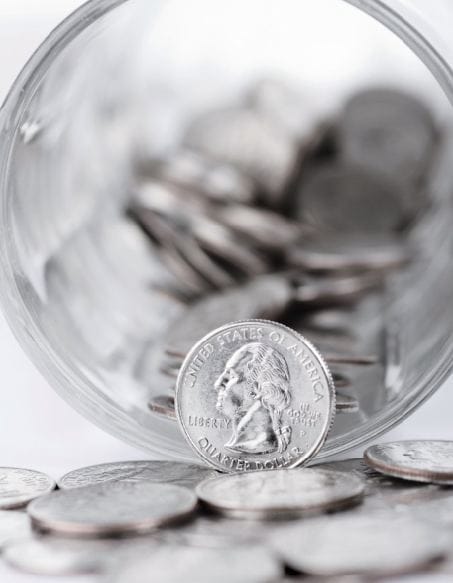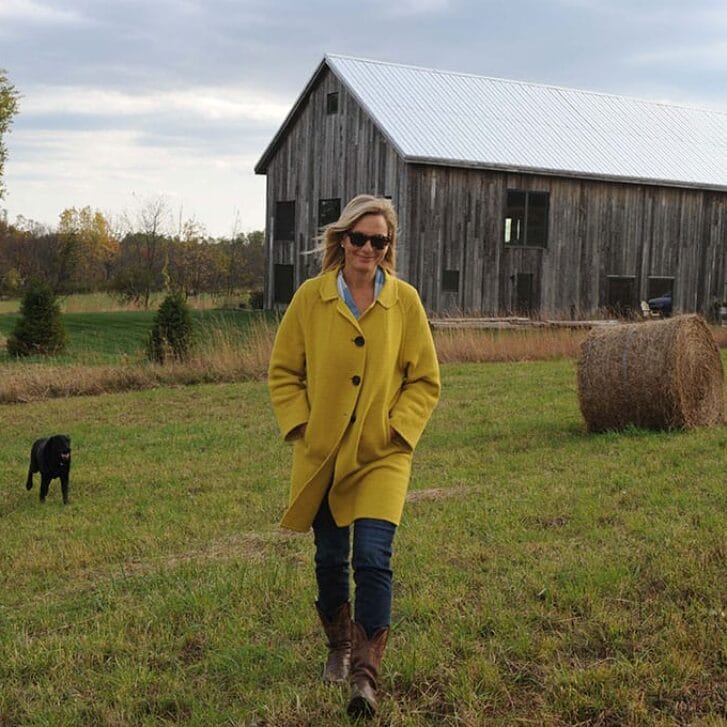In each issue of Wharton Magazine, we’ll test your knowledge with a question straight from an actual Wharton Exam or course, crafted by one of the school’s esteemed faculty members. Submit the correct answer and you’ll be entered into our drawing for a fabulous prize: tuition free attendance at a Wharton Executive Education program.
This final exam challenge comes from Eric T. Bradlow, W’88, the K.P. Chao Professor; professor of marketing, statistics and education; co-director of the Wharton Customer Analytics Initiative (WCAI); and vice dean and director of Wharton Doctoral Programs; and Elea McDonnell Feit, C’94, lecturer in the Marketing Department and WCAI research director. Good luck!
The Basics:
I have a jar with a random number of quarters in it. The random number of quarters follows a normal distribution with mean 160 and standard deviation of 60.
The Question:
What is the number of quarters in the jar? Exactly 160, something higher, or something lower?
The Winner:
Winner of the spring issue Final Exam challenge: Mary Filipek Lundstrom, W’87
The Answer:
Did you say 160? That answer would certainly maximize your chances of winning, but over the many small chances you take in a lifetime, it is best to maximize the expected value of your decisions. When we are making decisions under uncertainty, as we often do in business, there are two key things we need to assess: What is the likelihood of each outcome (which in this case we told you follows a normal distribution) and the payoffs we might get if we take a particular course of action (the number of quarters that we guess)? The expected value of a decision can be computed by averaging the payoff for that decision over the likelihood of each outcome.
In this example, the expected payoff is highest if you correctly guessed “something higher,” or specifically, 180.
Students sometimes find it helpful to consider this simpler example: Suppose that the jar contains either no quarters with probability or 1000 quarters at 3:1 odds. In that case, you would decide to guess 1000 and your expected return is 250 quarters. If you guess zero, you get nothing. So, you can see that making the guess that is most likely correct, zero, does not always provide the best expected payoff.
Solving the original problem requires a bit of algebra. The expected winnings for guessing x quarters is approximately:

To find the maximum expected payoff, we differentiate with respect to x and set the derivative to zero; after some cancellation this yields a quadratic equation, with solution:

Plugging in our values for m and s, and then rounding to the nearest integer, we get x=180. Because the payoff is higher for higher guesses, it is optimal to guess a bit higher than the most likely outcome of 160.
While this may seem like a contrived example, there are many situations in life where business and life where the payoff can outweighs the likelihood of the outcomes. For instance in sales, the likelihood that any particular sales lead will convert is far less than 50% . So, you would be right in guessing that the lead will most likely not result in a sale, but you will maximize your payout if you pursue the lead. You get nothing if you don’t try. When you decide how much time to spend on testing your new website before you launch, there may be only a small probability that your software has a serious bug, but you should probably spend the time testing, because in most cases a few days delay of the launch is far less costly than a small chance that you dissatisfy a very large number of customers. And in our personal lives, we only increase our chances of dying from an untreated cancer by a little bit if we don’t get the appropriate screenings, but dying is a pretty bad payoff, so most of us choose to bear the cost of getting screened.
Eric and Elea thank Andrew Gelman, who describes this example in Gelman, A. The American Statistician (1998), Vol 52, No 2.
(Out of all correct submissions, one winner was randomly selected to attend, tuition-free, on Executive Education, 3- to 5-day open-enrollment program. Does not include travel, expenses or personal costs incurred; may require taxation; subject to availability and admissions criteria; excludes the Advanced Management Program, Executive Development Program, Essentials of Management, Health Care, Industry-Specific or Global Programs. Must be 18 years or older to win.)
























